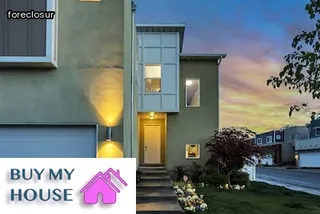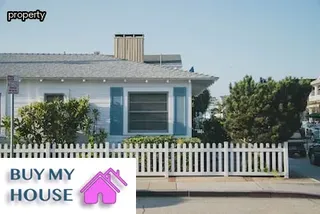The recent history of an association can be complex and difficult to understand, especially when it comes to delinquent HOA dues. In Minnesota, the MN Statutes Chapter 515B - Common Interest Ownership Act (CIOA) provides a framework for understanding how associations manage delinquent dues.
This act states that all owners must pay their assessments on time and that any late payments will incur penalties. Associations also have the power to collect unpaid dues through legal action and liens on properties.
Understanding this act is an important part of understanding the recent history of an association, particularly when it comes to delinquent HOA dues in Minnesota. Additionally, it is important to remember that associations are required by law to provide members with periodic financial reports that detail any unpaid fees or charges so that homeowners can stay informed about the current status of their association's finances.
By keeping up-to-date with these reports, homeowners can better understand their association's recent history as well as its current financial state.

The board of directors of a homeowners’ association (HOA) in Minnesota is responsible for making decisions that benefit all members, enforcing HOA rules and regulations, and managing the finances of the organization. They also hold considerable powers when it comes to delinquent dues, such as the authority to impose late fees, suspend privileges, and even foreclose on property.
It’s important for homeowners to understand these powers so they can be aware of their rights and responsibilities when it comes to paying dues on time. Association boards have the ability to establish payment plans or waive late fees in certain circumstances, but they also have the authority to initiate legal action if a homeowner fails to pay their dues.
Understanding what powers an association board has over delinquent dues can help ensure that homeowners remain up-to-date with payments and keep their properties safe from foreclosure.
As a homeowner in Minnesota, it is important to understand your rights and responsibilities when it comes to delinquent HOA dues. Minnesota law requires homeowners to pay dues in full and on time.
If a homeowner fails to do so, the HOA has the right to take legal action against them. This can include filing a lien on the property or even foreclosing on it.
Furthermore, HOAs also have the right to place restrictions on access and use of common areas or amenities if dues are not paid in a timely manner. It is important for homeowners to be aware of these rights and consequences so that they can make informed decisions about their finances.
Knowing your rights can help protect you from unexpected costs and liabilities that may arise from delinquent HOA dues.

When it comes to resolving issues within an association, the first step is to ensure that all parties understand their respective rights and responsibilities. Homeowners should be aware of any rules or regulations regarding delinquent HOA dues in Minnesota.
It is important to understand that associations have the right to pursue legal action against homeowners who do not pay their dues on time. In some cases, associations may also require collateral in order to secure payment.
Additionally, there are various payment options available for homeowners who are having difficulty meeting their financial obligations. These include installment plans, loan modifications, and other forms of debt relief.
Furthermore, many associations will work with homeowners to ensure that they can keep up with payments and avoid further delinquency. Ultimately, resolving issues within an association requires cooperation from both sides in order for it to be successful.
Navigating delinquent HOA dues in Minnesota can be a tricky situation for many homeowners. It's important to understand the consequences of unpaid HOA dues and the rights of both homeowners and HOAs in order to properly address this issue.
There are several steps that homeowners should take when faced with delinquent HOA dues in Minnesota. First, it's essential to review the assessment agreement that was signed at the time of purchase, as this document outlines all payment obligations and will provide guidance on how to proceed if payments are not received.
Homeowners should also contact their local HOA or management company as soon as possible, as they may have resources available such as payment plans or other options that can help resolve delinquency issues. Finally, it's important for homeowners to remain aware of all legal deadlines related to past due payments and any potential fines or punitive actions that could result from non-payment.
Navigating delinquent HOA dues in Minnesota requires knowledge of local regulations and a proactive approach. With a clear understanding of what is expected, homeowners can better protect their investment while ensuring they remain compliant with all HOA rules and regulations.

One of the most important aspects of understanding delinquent HOA dues in Minnesota is learning to identify common causes for problems in an association. Depending on the particular situation, these issues can vary, but usually involve a breakdown in communication or financial mismanagement.
Owners may fail to pay their dues on time due to lack of knowledge or negligence and it’s important for associations to take a proactive approach and establish clear policies regarding payment. Additionally, associations need to ensure they are properly managing funds by creating budgets that meet the needs of the community and staying up-to-date with any changes in local laws or regulations pertaining to HOA dues.
Finally, having an open line of communication between board members and homeowners can help prevent any disputes from arising in the first place. It’s essential for all parties involved to be aware of their rights and responsibilities when it comes to delinquent HOA dues in order for everyone to stay informed and make well-informed decisions.
Establishing effective communication protocols is an essential part of understanding delinquent HOA dues in Minnesota. Homeowners should ensure that their association has a clear system for sending out notifications and reminders about fees, as well as a way to keep track of who has and hasn't paid.
Additionally, it's important to provide multiple ways for homeowners to pay dues, such as online or by mail, to make it easier for them to remain in good standing with their associations. It's also important that the board of directors are available to answer any questions or address any concerns homeowners may have about paying their dues.
The board should also be available to help those facing financial hardship find alternative solutions for their situation. An open-door policy can help build trust between the homeowner and the association, which can prevent delinquencies from occurring in the first place.

When a homeowner in Minnesota falls behind on their Homeowner's Association (HOA) dues, they can be subject to fines and penalties. It is important for homeowners to understand what these fines are and how they are applied.
In some cases, the HOA may not have the authority to assess a fine or penalty if it is not outlined in their bylaws or rules. When this is the case, homeowners should contact an attorney experienced with HOA law in Minnesota to determine what rights they have.
If a homeowner does receive an assessment of fines and penalties, they should review them closely and make sure they are legally justified. If there is any dispute regarding the amount due, it can be discussed with the HOA board or addressed through arbitration or mediation.
In some cases, if a homeowner has already paid their delinquent dues but still owes fines or penalties, payment plans may be available that allow them to pay off those amounts over time. Understanding the regulations surrounding delinquent HOA dues will help homeowners ensure that any fines and penalties assessed against them are fair and reasonable.
Ensuring fairness and equity in collection policies for delinquent Homeowners Association (HOA) dues is essential for Minnesota homeowners. It's important to understand the different approaches taken by HOAs when collecting payments, as well as their legal rights.
In most cases, an HOA is allowed to place a lien on a property or take legal action if dues are not paid. Fortunately, there are measures that can be taken to protect homeowners from these aggressive tactics and ensure fairness and equity in collection policies.
Most HOAs have an appeals process in place for those who feel they were unfairly charged or treated unfairly throughout the collection process. Additionally, many HOAs will work with homeowners to create a payment plan that fits within the homeowner's budget.
Furthermore, laws exist at both the state and federal level that protect homeowners from unfair practices, such as charging exorbitant late fees or interest rates. Understanding what measures can be taken to ensure fairness and equity in collection policies is paramount for Minnesota homeowners looking to avoid delinquency with their HOA dues.

Late HOA dues are a serious issue for many homeowners in Minnesota, and the consequences of non-payment can have significant impacts on community assets. The financial burden of delinquent HOA dues is often passed onto other members, meaning that a single unpaid bill can actually decrease the value of all properties within the association.
Local infrastructure, amenities and services may also be put at risk if the budget allocated to these services is not met due to an insufficient amount of dues payments. In addition, unpaid HOA fees can lead to higher taxes for all homeowners in the area as local governments may need to use public funds to make up for lost revenue due to unpaid HOA dues.
When assessing how delinquent HOA dues affect community assets, it is important to consider not only the immediate financial impact but also how it affects neighborhood stability and quality of life.
When homeowners in Minnesota are faced with delinquent HOA dues, it can be difficult to know what steps to take. It is important to understand the state laws governing unpaid obligations and create solutions that are tailored to the individual situation.
Homeowners should be aware of their rights, as well as the consequences they may face if they don’t adhere to the rules and regulations of their HOA. They may need to contact a lawyer or legal adviser for help understanding the terms of their contract and how those apply to their unique circumstances.
Depending on the severity of the issue, there may be different methods that can be employed for collecting or negotiating payment. In some cases, mediation between all parties involved may be necessary in order to reach a resolution that all parties are satisfied with.
There are also a variety of methods that HOAs can use for tracking payments and creating a seamless payment system for homeowners. Taking all these factors into consideration will help ensure a successful outcome when dealing with delinquent HOA dues in Minnesota.

In understanding delinquent HOA dues in Minnesota, alternative payment options can be a great help for homeowners. If the full amount cannot be paid up front, homeowners can consider breaking down their payments over time.
They may also look into setting up a payment plan with their HOA to make it more manageable and give them more freedom to pay off the balance at their own pace. Additionally, homeowners may want to look into other forms of payment such as checks or money orders, credit cards or debit cards, or even using online banking services.
Each of these methods has its advantages and disadvantages depending on the homeowner's specific situation. Understanding what is available and what works best for them can help to alleviate some of the financial pressures associated with delinquent HOA dues in Minnesota.
Navigating delinquent Homeowner’s Association (HOA) dues can be a major headache for homeowners in Minnesota. It is important to know what resources are available to help with understanding and managing any delinquent payments.
Leveraging the right resources can support homeowners in their education of this process, enabling them to make informed decisions when dealing with delinquent HOA dues. To begin, Homeowners should have an understanding of the laws governing HOAs in Minnesota as well as the role of each party involved.
Additionally, it is beneficial to get support from professional legal advice if needed, or take advantage of online forums that offer guidance from experienced community members. Lastly, many times local government offices will have information on delinquency processes and timelines that could prove invaluable when sorting out payment plans.
With the right knowledge and access to resources, homeowners can confidently tackle any issues related to delinquent HOA dues in Minnesota.

When it comes to delinquent HOA dues in Minnesota, homeowners should investigate possible legal action against a member who has not paid their dues. First, contact the homeowner to understand why they have not paid and try to come to an agreement on payment.
If no agreement can be reached, then it may be necessary to take legal action. Depending on the governing documents of the HOA, there are multiple options for pursuing legal action such as filing a lawsuit or initiating a lien foreclosure proceeding.
It is important to be aware of all applicable laws regarding collection efforts and remedies available under Minnesota law when taking legal action against a member. Additionally, if your state has an association-specific statute, you should review it carefully so that you understand what steps must be taken in order to move forward with any possible legal proceedings.
Ultimately, understanding delinquent HOA dues in Minnesota can help homeowners make informed decisions about how best to proceed when attempting to collect delinquent fees from members who have failed to pay.
In Minnesota, homeowners that are struggling to pay their delinquent HOA dues can seek assistance through a variety of resources. State and local government agencies provide financial aid for those in need, including funding for mortgage payments, rent assistance, and utility bills.
Private organizations such as the Minnesota Homeowners Assistance Program (MHAP) offer grants and loans to help cover delinquent dues. Furthermore, nonprofit organizations like Greater Minnesota Housing Fund and NeighborWorks America have programs designed to assist low-income individuals with housing expenses.
In addition to this financial aid, there are also counseling services available to help owners better manage their finances and budgeting. The state of Minnesota has put together a comprehensive list of resources available in the state which includes all potential options for homeowners struggling financially with their HOA dues.

When it comes to understanding delinquent HOA dues and the regulations around them in Minnesota, homeowners should familiarize themselves with both state law and federal regulations. State law can be more specific when it comes to how payments are collected, while federal regulations provide a broader overview of the legal rights of homeowners.
For example, state law may require that late fees be paid before any other charges can be assessed—a regulation that doesn't apply in all states. Additionally, federal laws mandate that all homeowners' associations comply with fair debt collection practices as outlined by the Consumer Financial Protection Bureau (CFPB).
Therefore, homeowners should understand their rights in relation to these two sets of laws and how they interact with each other in order to better manage their HOA dues. Furthermore, it's important for homeowners to understand the different consequences associated with non-payment of dues such as interest imposed or even foreclosure proceedings initiated by the HOA.
Knowing exactly what is expected under both state and federal laws will help ensure that homeowners are not taken advantage of by their HOAs when dealing with delinquent HOA dues.
When it comes to delinquent HOA dues in Minnesota, foreclosure should be viewed as a last resort. If a homeowner is unable to pay the dues and delinquent fees, they should first contact their HOA or an attorney to discuss available options.
There are a variety of different paths that homeowners can take before foreclosure becomes necessary. It may be possible to negotiate payment arrangements or new terms with the HOA, such as forgiving some late fees or extending the due date.
In addition, owners may be able to refinance their home loan, seek assistance from friends and family, or apply for grants or other forms of financial aid. Foreclosure should only be considered once these other methods have been explored and exhausted due to the severe consequences it can have on a person’s credit score and financial situation.

Navigating disputes involving Board Members and Owners when it comes to delinquent Homeowners Association (HOA) dues in Minnesota can be a challenging process. It is important for all parties involved to understand the best practices for collecting delinquent dues, as well as how to improve communication between board members and owners.
To ensure that all parties are on the same page, exploring options for improving communication between board members and owners is essential. This includes understanding the importance of having open lines of communication, setting expectations from the start, being willing to listen and compromise, and having an effective dispute resolution process in place.
Additionally, reviewing best practices for collecting delinquent HOA dues in Minnesota includes understanding state laws regarding homeowners’ rights, having clear policies in place to define who is responsible for what fees and when they must be paid by, as well as providing adequate notification of late payments and increasing transparency with homeowners. With these considerations in mind, the process of understanding delinquent HOA dues in Minnesota can become less daunting and a more successful venture overall.
Minnesota is a super lien state, meaning that if you fail to pay your Homeowners Association (HOA) dues, the HOA can place a lien on your property for the unpaid dues and any interest or fees associated with them.
This means that the HOA can take priority over other creditors in obtaining payment of delinquent dues.
If not paid within a certain period of time, the HOA may foreclose on the property and sell it to satisfy the lien.
Therefore, it is important for Minnesota homeowners to understand their rights and obligations regarding delinquent HOA dues in order to avoid foreclosure and maintain ownership of their homes.

In Minnesota, a Homeowners' Association (HOA) can be dissolved if all the members agree to it. Under state law, an HOA is allowed to dissolve if at least two-thirds of its members vote in favor of dissolution.
To dissolve an HOA, all delinquent dues must first be collected and paid in full, and all other outstanding debts cleared. It is important to understand that failure to pay delinquent HOA dues may lead to serious legal action being taken against you as a homeowner.
Therefore, it is essential for homeowners in Minnesota to stay up-to-date on their HOA dues payments so they do not fall into delinquency and risk having their HOA dissolved due to nonpayment.
HOAs in Minnesota are regulated by the Minnesota Common Interest Ownership Act (MCIOA). This act is designed to provide guidance and regulations for HOAs in the state, ensuring that homeowners are aware of their rights and responsibilities.
The MCIOA outlines all the duties of both the homeowner and the HOA, and this includes the responsibility of collecting delinquent HOA dues. All HOAs must adhere to this act when it comes to any issues related to delinquent dues, and they are held accountable if they do not follow its provisions.
Furthermore, if disputes arise between a homeowner and an HOA regarding delinquent dues, then either party can take legal action through mediation or litigation as provided by the MCIOA. It is important for homeowners to understand their rights under this act if they ever find themselves in a situation where they are required to pay delinquent HOA dues.
The average HOA fee in Minnesota is $200-400 per month, depending on the size of the home and the amenities offered by the homeowners association.
The fees cover common expenses such as maintenance, landscaping, utilities, and any other shared costs related to running a community or condo complex.
As with any type of fee, delinquent HOA dues can be an issue for homeowners.
Understanding the causes and consequences of delinquent HOA dues is key for avoiding financial hardships in Minnesota.
A: When foreclosure, bankruptcy, or the sheriff are involved with delinquent HOA dues in Minnesota, the homeowner's debt must be satisfied and paid off before any new owner can take possession of the property.
A: A Judgment for delinquent HOA dues in Minnesota will result in a lien or claim against the homeowner’s property. This means that the homeowner may be liable to pay back the dues, even after their first mortgage is foreclosed upon, they file for bankruptcy, or the sheriff is involved.

A: When a homeowner in Minnesota fails to pay HOA dues, the HOA may take legal action by pursuing the delinquent fees through a collection agency or attorney. The HOA should also make an effort to resolve the issue through conciliation.
A: Minnesota law requires that all unpaid HOA dues and assessments be assessed simple interest at the rate of 8% per annum. If a homeowner's first mortgage is foreclosed upon, files for bankruptcy, or the sheriff is involved, any unpaid HOA dues become part of the total debt to be repaid in order to clear title to the property.
A: In Minnesota, delinquent HOA dues may be subject to a lien against the property and could require payment of associated costs such as attorney fees, court costs, interest, insurance premiums, and other related expenditures.
A: Under Minnesota Statutes, a Debtor is responsible for payment of delinquent HOA dues up to the time of Foreclosure, Bankruptcy filing, or Sheriff's sale. A Debtor may also be held liable for any associated expenses, security interests, and attorney fees.